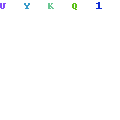
Cuba bashes USAID pro-democracy programs
By Tracey Eaton
From CubaNews
 Cuba’s Foreign Ministry is accusing U.S. diplomats of establishing “illegal Internet centers” in Havana as part of a broader effort to build an opposition movement. State Department spokeswoman Victoria Nuland, speaking to reporters Nov. 2 in Washington, replied: “We are absolutely guilty of those charges. The U.S. Interests Section in Havana does regularly offer free courses in using the Internet to Cubans who want to sign up. We also have computers available for Cubans to use. Obviously this wouldn’t be necessary if the Cuban government didn’t restrict access to the Internet and prevent its own citizens from getting technology training.”
Cuba’s Foreign Ministry is accusing U.S. diplomats of establishing “illegal Internet centers” in Havana as part of a broader effort to build an opposition movement. State Department spokeswoman Victoria Nuland, speaking to reporters Nov. 2 in Washington, replied: “We are absolutely guilty of those charges. The U.S. Interests Section in Havana does regularly offer free courses in using the Internet to Cubans who want to sign up. We also have computers available for Cubans to use. Obviously this wouldn’t be necessary if the Cuban government didn’t restrict access to the Internet and prevent its own citizens from getting technology training.”
Congress set aside $55 million for democracy-promotion programs in Cuba for fiscal years 2009 through 2011. USAID handled nearly $31 million of that, and the State Department managed the rest. On Nov. 1, Cuba complained that U.S. diplomats manage these programs from USINT- Havana as part of a “regime change” strategy, and that “the USIS has continued illegal activities that have nothing to do with the functions of a diplomatic mission.”
It added that American officials are training, financing and supplying individuals “in flagrant violation of the Vienna Convention on Diplomatic Relations, of Cuban law and the agreement itself that led to the establishment of the U.S. Interests Section.”
USAID says its intent is to give Cubans the tools to “freely determine their future” and boost the flow of information “to, from and within the island.”
Most Cubans do not have Internet access and the government controls most print and broadcast media on the island. USAID provides laptops, mobile phones, USB drives and other equipment to independent civic, social and political groups in Cuba. As part of the agency’s democracy-building campaign, it awarded a three-year $4.3 million grant to the New America Foundation’s Open Technology Institute in September.
That surprised Anya Landau French, who directs the foundation’s U.S.-Cuba Policy Initiative, which opposes U.S. economic sanctions against Cuba and favors engagement.
“I’m not involved in any USAID grants, and I frankly don’t want to be,” she wrote. “I think I’m pretty clearly on record in my belief that USAID’s programs in Cuba have largely failed in their objectives and are often counter-productive to anyone associated with them.”
As for Internet access, she had this to say:
“I find myself so conflicted: on the one hand, I believe the Internet and other modes of mass communication should not be kept from the public, and that no extenuating circumstance can justify any nation withholding such tools from its citizens.
“On the other hand, I’m not sure that foreign government intervention is the best way to address this problem.”
USAID didn’t say exactly how the New America Foundation would use the grant money, and foundation spokeswoman Clara Hogan didn’t answer an email requesting comment.
In August 2011, the State Department awarded the New America Foundation a two- year $1.4 million grant to manage a project called Open Internet Tools, or OpenITP, USASpending.gov records show.
OpenITP supports free, open-source software projects that help get around censorship and digital surveillance.
These projects include the Briar project, which says it is building “a news and discussion platform that will enable journalists, activists and civil society groups in authoritarian countries to communicate without fear of government interference.”
USAID does not release full details of its Cuba programs, citing the need to protect employees, contractors and aid recipients.
The agency’s website listed the New America Foundation as a grant recipient in September. By November, the foundation no longer appeared in the listing, which showed the agency’s current Cuba partners – and grant amounts – as follows:
- Foundation for Human Rights in Cuba: $3.4 million from Sept. 2011 to Sept. 2014.
- Grupo de Apoyo a la Democracia: $3 mil- lion from Sept. 2012 to Sept. 2015.
- International Relief and Development: $3.5 million from Sept. 2011 to Sept. 2014.
- International Republican Institute: $3 million from Sept. 2012 to Sept. 2015.
- Loyola University: $3 million from Sept. 2010 to Sept. 2013.
- National Democratic Institute: $2.3 mil- lion from Sept. 2011 to Sept. 2014.
- Pan-American Development Foundation: $3.9 million from Sept. 2011 to Sept. 2014.
- New America Foundation: $4.3 million from Sept. 2012 to Sept. 2015.
Cuban officials promised to continue fighting U.S. government-financed programs.
“Cuba will not give ground to interference,” the Foreign Ministry vowed in a statement, “and will use every legal means at its disposal to defend its hard-fought sovereignty and make ensure that the Cuban people and the country’s laws are respected.
Tracey Eaton, former Havana bureau chief of the Dallas Morning News, now lives in St. Augustine, Florida.

